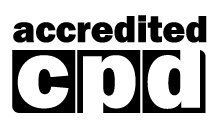Roundtable
The Duty of Good Faith in Contract Law and
the dialogue between various legal traditions
Wednesday October 26, 2016
Moot Court Room
From 4:00-6:00 PM
Refreshments Provided
Registration Fee- $50.00 +HST.
Free for Students and U Windsor Faculty & Staff
In Bhasin v. Hrynew the Supreme Court of Canada adopted an organizing principle of good faith in the performance of contracts and laid out a duty of honest performance as one of the applications of this organizing principle. The Supreme Court referred to the well-established duty of good faith in Québec civil law and in the US. The purpose of this round table is to explore further ramifications of the duty of good faith in contract law and the legal profession post Bhasin v. Hrynew, with a particular focus on the dialogue between various legal traditions: Canadian common law, Québec civil law, Indigenous law, and US law.
The Honourable Richard Wagner, Judge Supreme Court of Canada
Will discuss the implications of Bhasin v. Hyrnew and the dialogue between various legal traditions in Supreme Court decisions.
Jeffery Hewitt, Assistant Professor, Windsor Law
Will explore how productive dialogue across common, civil and Indigenous legal orders strengthens Canada’s legal pluralism with the recognition of and reliance upon the laws of the three founding partners of Confederation. From wampum belts (pre- and post-contact), Treaties, multi-jurisdictional and transnational agreements, Indigenous Peoples have long been engaged with contract making from a legal pluralistic approach. Does doctrine relating to section 35 of the Constitution Act, 1982 provide shared ground upon which to further consider Indigenous legal orders beyond lands, resources and title? What do we know about some Indigenous legal considerations in relation to promises, witnesses, forms of contractual agreements and the duty of good faith?
Jeff Berryman, Professor, Windsor Law
Will discuss how cases post Bhasin provide guidance on how good faith will be applied as an organizing principle, and in particular with respect to:
[1] The duty to cooperate in the achievement of the purposes of the agreement;
[2] The duty to exercise contractual discretionary powers in good faith and not for an ulterior motive;
[3] The duty not to evade contractual obligations; and
[4] The duty of honest performance,
and how these duties are being remedied when breached.
Marcela Aroca, Principal Aroca Litigation
Will reflect on how an organizing principle of good faith in contract law interacts with professional obligations of lawyers when negotiating contracts, in particular, section 7.2-1 of LSUC Rules of Professional Conduct, which requires a lawyer to be “courteous, civil, and act in good faith with all persons with whom the lawyer has dealings in the course of their practice.”
Pascale Chapdelaine, Associate Professor Windsor Law
Will look at various obligations in consumer protection statutes and in the Québec Civil Code and their link to the duty of good faith. Do these obligations amount to a de facto good faith standard and will these obligations be applied by analogy in other non-consumer transactions?
Troy Harris, Associate Professor, University of Detroit Mercy Law
Will discuss whether an explicit good faith principle as embodied in the US Restatement and Uniform Commercial Code imposes an obligation to negotiate in good faith and what can be learnt from its application.
This qualifies for 2 Continued Professional Development hours (LSUC)

